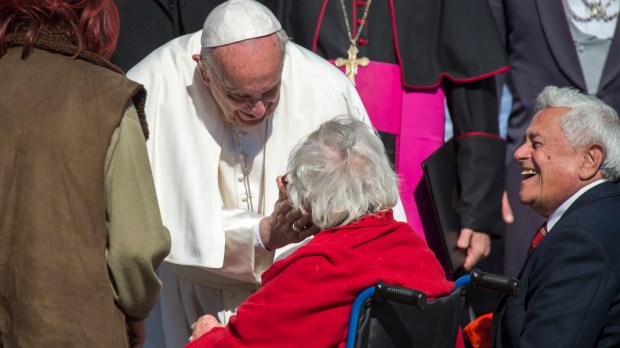Pope Francis on Friday received in an audience the participants of the plenary assembly of the Congregation for the Doctrine of the Faith, which focused in particular on end-of-life issues.
Faced with the growing acceptance of euthanasia, said the pontiff, the dicastery has an “eminently pastoral” mission to help people to regain the sense of their “intangible” dignity.
The Congregation for the Doctrine of the Faith, the pontiff explained, must remind people of their “transcendent vocation.” At a time when human beings seem to be counting on their own strength for salvation, it is necessary to remind them that salvation is found “in communion with the risen Christ.”
Contemporary man, the pope said, often finds it difficult to reflect on the realities of pain and suffering, of life and death, with “a gaze of hope.” One of the services the Congregation can render to the men and women of today, he said, is to offer to them “a trusting hope” that can allow them “to live well, and maintain a confident perspective toward the future.”
According to the pontiff, the Church’s duty is not to “leave man to himself” and his mistakes.
The vocation of the dicastery, continued the Bishop of Rome, is therefore “eminently pastoral,” especially regarding issues related to the end of life.
Faced with a growing demand for the legalization of euthanasia as an “ideological affirmation of the power of man,” it must be remembered that human dignity is “intangible,” Pope Francis insisted. When dignity is judged according to its “efficiency and productivity,” he lamented, everything becomes possible.
The current secularization, the pontiff explained, “absolutizes” self-determination and autonomy.
This allusion is, in particular, a critique of Italy, where in late 2017 the Parliament voted in a law giving power to advance directives on medical decisions, without the possibility of conscientious objection. Several Catholic hospitals in the country have announced that they will oppose this refusal of objection.

